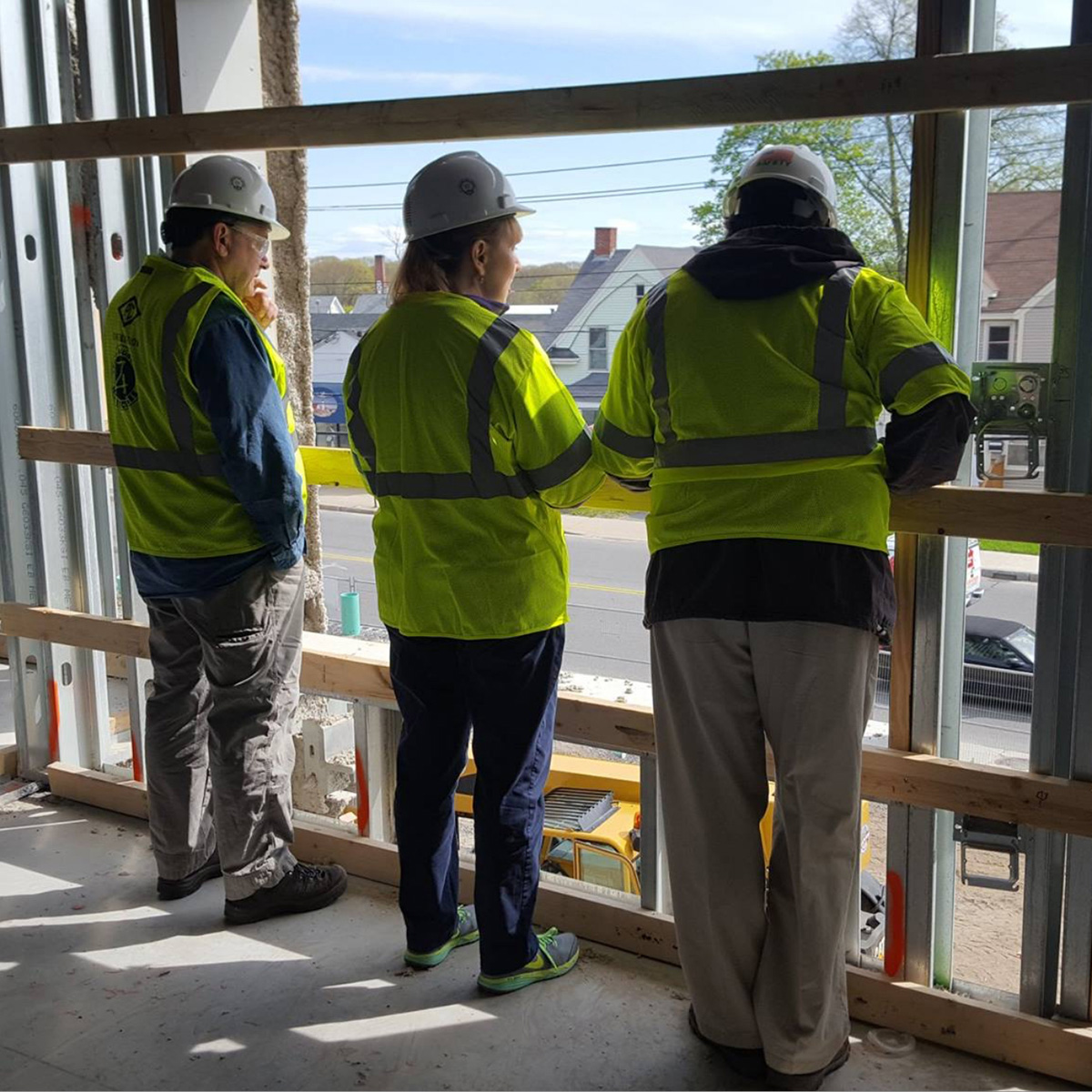News You’ll Want to Know
“Homeownership is the key to attaining generational stability. Education + starter home inventory provides a new pathway for our neighbors.”
Maine Organizations Use New Model to Preserve Affordable Rural Housing
Governor Mills praises use of state’s affordable housing tax credit for “exactly this kind of important work.”
THOMASTON, Maine, January 30, 2023—A unique collaboration among Maine organizations and the U.S. Department of Agriculture has preserved 28 affordable homes, creating a long-sought model for Maine and other states to reduce the looming loss in rural areas of thousands of federally subsidized affordable apartments.
Led by the Brunswick-based Genesis Community Loan Fund, the model preserves affordable rental housing by transferring USDA Rural Development properties from private to nonprofit ownership. In this first use of the model, Volunteers of America of Northern New England became the new owner of two properties on Pine and Water Streets in Thomaston that contain the 28 apartment homes.
“Genesis has made a strong commitment to bringing together the resources and partners needed to preserve this vital source of housing in rural communities,” said Liza Fleming-Ives, executive director of the Genesis Fund. “Our model is a significant contribution to what needs to be a large, comprehensive effort by federal and state partners to secure affordable housing for the wellbeing of rural residents.”
Key to the new transfer model is Maine’s relatively new affordable housing tax credit, in a first use of the credit for rural housing preservation.
“When I signed the Maine Affordable Housing Tax Credit into law in 2020, it was exactly this kind of important work that we wanted to see come to fruition,” said Maine Governor Janet Mills. Mills’ proposed biennial budget dedicates $30 million toward affordable housing.
“I applaud the Genesis Community Loan Fund, Volunteers of America of Northern New England, MaineHousing, and USDA Rural Development for their collaborative work,” Mills said. “My Administration will continue to support the preservation of affordable housing, especially in rural Maine, because every person deserves to be able to live safely and with dignity in the communities they love.”
In Maine, 7,700 apartments are currently part of USDA Rural Development’s Section 515 program, which makes rent affordable for tenants, including families, elderly residents, and people with disabilities. Established in 1963, the program made 1-percent-interest mortgage loans to owners looking to develop rural housing. At its height in the late 1970s, USDA financed the development of 35,000 rural apartments a year across the country.
Now the mortgages are maturing at the same time owners have become older and no longer want to own the properties. Properties may be sold and leave the program, which means the apartments may suddenly become unaffordable to tenants who have made them home for years.
With a grant from USDA, Genesis staff began work in 2018 on the complicated process of transferring 515 properties to local nonprofits and housing authorities in order to keep the properties in the USDA program.
Beth Nightingale, the daughter of Mary and Richard “Dick” Nightingale, who built the two Thomaston properties in 1978, said, “My parents recognized the importance of affordable housing and understood the impacts of removing the properties from the 515 program. They chose preservation over maximizing profit, and were patiently committed to the process.”
Unfortunately, Nightingale’s father died just months before the transfer was completed at the end of December.
She noted that twice between 2016 and 2019, she began the process to transfer the properties to a nonprofit organization, but that efforts failed to complete a transfer. In 2019, she began working with the Genesis Fund, and contracted with VOA Northern New England in 2020.
“I wish this could have happened more easily and quickly. It was a protracted process that without the Genesis Fund’s involvement would not have resulted in a successful transfer,” Nightingale said. She said she feels strongly that regulatory reform is needed to make the USDA’s process faster and more efficient for owners ready to sell properties enrolled in the 515 program.
Rich Hooks Wayman, president and CEO for VOA Northern New England, said his organization is excited to partner with the Genesis Fund and continue to work towards a solution to the current housing crisis.
“In the midst of one of the worst housing crises in generations, VOA Northern New England is proud of our partnership with the Genesis Fund to be the first nonprofit in Maine to preserve affordable housing in this manner,” Wayman said. “We are especially focused on rural communities where there is a growing need for affordable and workforce housing. VOA looks forward to maintaining high quality homes and being a good neighbor in Thomaston for decades to come.”
As part of the ownership transfer, the Genesis Fund made loans to VOA Northern New England to purchase and renovate the properties. Key partners in preserving these properties also include MaineHousing, Bangor Savings Bank, the Federal Home Loan Bank of Boston, and the Maine Department of Economic and Community Development.
About the Genesis Community Loan Fund: A 30-year-old Community Development Financial Institution (CDFI), the Genesis Fund brings together resources to create housing and other economic and social opportunities with people and places being left out of the mainstream economy. We make projects happen that otherwise wouldn’t, throughout Maine and in other communities in Northern New England. We do this by lending capital, delivering expert advice, leveraging our experience to promote systemic change and policy solutions, and opening channels for people and institutions to move resources toward community needs.
About VOA Northern New England (VOA): VOA is a national, nonprofit, spiritually based organization providing human service programs and opportunities for individual/community involvement. To learn more about VOA, visit www.voanne.org or call (207) 373-1140.

